Toward a Sociology of Indigenous Placemaking: New Chapter by Rocha Beardall
CSDE Affiliate Theresa Rocha Beardall authored a chapter, titled “Toward a sociology of Indigenous placemaking” in the edited volume New Approaches to Inequality Research with Youth. This chapter shares the concept of Indigenous placemaking to counter the erasure of Indigenous knowledge and experiences from sociological study. Drawing from the work of several Indigenous Studies scholars and thinkers, Rocha Beardall defines Indigenous placemaking in three parts. By foregrounding Indigenous perspectives in sociological research, Indigenous placemaking illustrates that sociality is place-based, lived experiences must be centered, and that land is and always will be a mode of relationality. Sociological research can learn to better analyze how place matters, not only for its geography but as part of a dynamic social space defined by Indigenous relationality and imbued with the possibility for interdependent futures.
(read more)
|
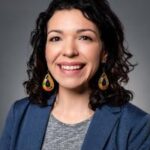 |
New Research by Foster, Pharris-Ciurej, and Colleagues Finds Racial and Ethnic Disparities in Excess Mortality During the COVID-19 Pandemic
New Study by Adhia and Co-authors Evaluates State Laws Addressing Teen Dating Violence
Rowhani-Rahbar is Appointed Director of the Firearm Injury & Policy Research Program
CSDE Affiliate Ali Rowhani-Rahbar (Epidemiology, Pediatrics) was appointed director of the Firearm Injury & Policy Research Program (FIPRP). Rowhani-Rahbar is a national leader in firearm injury prevention serving as a Member of the Board of Directors for the National Research Society for the Prevention of Firearm-Related Harms and Member of the Board of Scientific Counselors for the National Center for Injury Prevention and Control at the Centers for Disease Control and Prevention.
(read more)
|
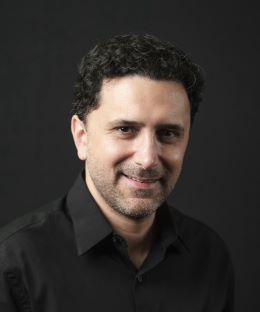 |
Bratman Co-authors Research on Public Nature and Health for Homeless Populations
CSDE Affiliate Gregory Bratman (Environmental and Forest Sciences) co-authored an article in Social Science & Medicine, titled “Public nature and health for homeless populations: Professionals’ perceptions of contingent human benefits and harms“. This article investigates relationships between public nature and health for unsheltered homeless populations. It examines perceptions of health benefits and harms for people living in public natural areas including local, state, and national forests and parks in the Seattle metropolitan area (USA). Interviews with environmental, social service, and law enforcement professionals who regularly interact with this vulnerable population were conducted and thematically analyzed to understand perceptions of physical and mental health outcomes.
(read more)
|
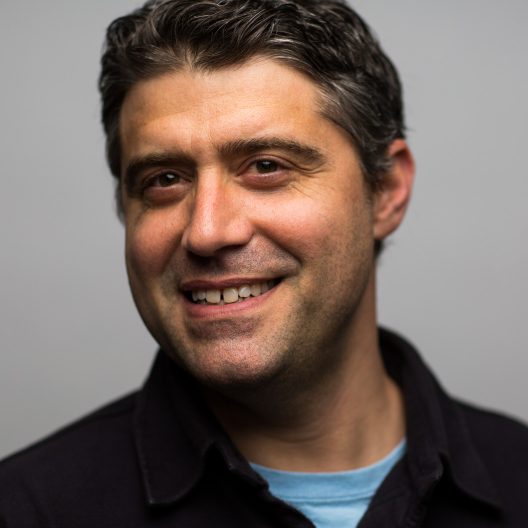 |
Eisenberg and Colleagues Find Low Validity of Telomere Length Epigenetics Clocks
CSDE Affiliate Dan T.A. Eisenberg (Anthropology) authored an article with colleagues in GeroScience, titled “DNA methylation-based estimators of telomere length show low correspondence with paternal age at conception and other measures of external validity of telomere length“. Epigenetic clocks, specifically DNA methylation based estimators, are emerging measures to index health, longevity, and even environmental exposures (e.g. smoking). DNA methylation based estimators of telomere length (DNAmTL) have been shown to better predict telomere length-associated variables (e.g., age, sex, and mortality) than telomere length itself. The biological significance of DNAmTL is unclear. Eisenberg and colleagues used data from the Cebu Longitudinal Health and Nutrition Survey to examine how DNAmTL measures compared to actually measured telomere lengths. Contrary to previous findings, on almost all measures of external validity (correlations with parental telomere length, southern blot telomere length, and age), actually measured TL outperformed DNAmTL. These findings suggest that DNAmTL is not a reliable index of inherited aspects of telomere length and underscores uncertainty about the biological meaning of DNAmTL.
(read more)
|
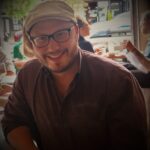 |
|
|
*New* CSSS Seminar – Gender, Deliberation, and Natural Resource Governance: Experimental Evidence from Malawi (3/27/24)
|
Please join us for our first speaker of Spring Quarter in the Center for Statistics and the Social Sciences Seminar Series. Wednesday, March 27 at 12:30pm, Amanda Clayton, Assistant Professor in the Travers Department of Political Science at UC Berkeley, and CSSS alumni, will give a seminar titled: Gender, Deliberation, and Natural Resource Governance: Experimental Evidence from Malawi. This seminar will be offered as a hybrid session from 12:30-1:30 in Savery 409 and on Zoom. Please find the abstract and information about joining on the event page. If you'd like to meet with Amanda outside the CSSS seminar, please sign up for a slot HERE.
(read more)
|
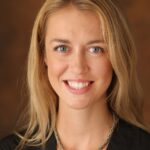 |
*New* CSDE Computational Demography Working Group (CDWG) Hosts First Meeting of the Quarter with Max Planck Institute for Demographic Research (MPIDR) (3/27/24)
|
On March 27th from 9:00 AM – 10:00 AM PST/5:00 PM – 6:00 PM CET, the Computational Demography Working Group will host the first meeting of the Spring quarter. The Spring CDWG meetings will be co-hosted with the Max Planck Institute for Demographic Research (MPIDR). Researchers from both institutions will meet via Zoom to learn data, methods, and applications of demographic and social science research together. In the first session, we will introduce the speakers and audience, and discuss expectations from the sessions. The meeting will be held hybrid on the UW campus with light breakfast (coffee and pastries) provided. CDWG Will be Hybrid in the Spring Quarter of 2024. You can register for Zoom here or attend in-person in Raitt 223 (The Demography lab).
(read more)
|
 |
Spring Schedule for CSDE Workshops and Working Groups
|
In spring quarter, CSDE will be hosting a workshop series and several working groups, including the Computational Demography Working Group, the Biomarker Working Group, and the Migrations & Settlement Working Group. Students, faculty, and staff are all welcome to register and we welcome registrants from outside the University of Washington for our remote workshops as well.
You can find our workshop website and register for our Spring 2024 workshops and working groups in the links below. Stay tuned as we announce the topics of working group meetings throughout the quarter!
Please reach out to CSDE’s Training Director, Jessica Godwin (jlg0003@uw.edu), if you have additional workshops you would like to see offered in the future and we will do our best to accommodate those requests. View the schedule as a pdf here.
Spring Workshop Series
CSDE Working Groups
- Computational Demography Working Group
- Biomarker Working Group
- Date: 1st Thursdaysof each month (4/4, 5/2, 6/6) @ 12:30PM-1:30PM
- Location: Raitt 223
- Contact: Tiffany Pan (tpan@uw.edu)
- Migration & Settlements Working Group
- Date: Every other Friday @ 9:00AM starting March 29th
- Location: Raitt 114/Zoom (meeting link)
- Contact: Aryaa Rajouria (rajouria@uw.edu)
(read more)
|
 |
Save the Date: NIA Virtual Workshop on Impacts of Extreme Weather Conditions and Disasters on Older Adult Health (3/26-3/27/24)
|
The National Institute for Aging will be hosting a virtual workshop from March 26-27th. Around the world, we are seeing an increase in the frequency and intensity of weather-related events and disasters. Individuals who are vulnerable to the effects of extreme weather, especially older adults, are experiencing worsening health outcomes, such as cardiovascular and respiratory disease, as well as excess mortality. This workshop is situated within the context of an increasingly urgent need to examine the exposures, vulnerabilities, and impacts faced by older adults, and the behavioral and social pathways through which health outcomes and disparities are impacted by climate events. Read more in the event flyer and register on Zoom here.
(read more)
|
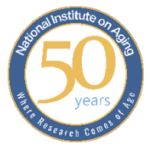 |
Applications open for the Population Health Applied Research Fellowship Program (Due 3/29/24)
|
Applications are now open for the Population Health Applied Research Fellowship Program. This program is run in partnership between the Population Health Initiative and CSDE. The 10-week program is open to graduate and professional students from all UW schools and colleges. The program supports multidisciplinary teams of UW graduate and undergraduate students to work on real-world population health challenges. Projects are sourced from external clients who play an important role in structuring project deliverables.
(read more)
|
 |
Queer Demography Summit (3/29/24)
|
The Office of Population Research at Princeton University presents the Queer Demography Summit on Friday, March 29th from 8am to 6pm (ET). This historic day-long summit brings together some of the nation’s and the world’s leading demographers of queer populations to discuss the state of queer demography. It will examine how the field has challenged and advanced general understandings of core demographic methods and research practices, as well as contributed substantive new knowledge on queer people’s health and wellbeing, family dynamics, migration patterns, experiences of inequality, and much more. This summit will be conducted in a hybrid format, with a required registration. Register for in-person here and for the Zoom webinar here.
(read more)
|
 |
Apply for the 2024 Behavioral Economics Summer Institute (Due 3/29/24)
|
The Russell Sage Foundation is accepting applications for its 2024 Behavioral Economics Summer Institute. The ten-day Summer Institute in Behavioral Economics, led by David Laibson (Harvard University) and Matthew Rabin (Harvard University), introduces graduate students and early career faculty to the findings and methods of behavioral economics—the application of psychological theory and research to economics.
(read more)
|
 |
Call for Applications: Social Entrepreneurship Fellowship Program (Due 3/29/24)
|
The Social Entrepreneurship Fellowship program is open for graduate students to start submitting applications! The Social Entrepreneurship Fellows allows students to explore how best to deploy social enterprise models for innovations that are developed by University of Washington researchers. This is a 10-week program over the summer. Four fellows will be selected from across a variety of disciplines and investigate a range of projects. The projects are focused on finding innovative ways to maintain the balance between financial sustainability and social impact in addition to generating revenue.
(read more)
|
 |
*New* Limited Submission: AXA Research Fund & Geneva Health Forum (Due 3/29/24)
|
The AXA Research Fund & Geneva Health Forum have joined forces to offer the Grand Jet d’Or de Genève Award. The objective of the award is to support a research team engaged in researching or implementing research-based projects with a focus on health treatment, measurements, use of data, and community involvement in addressing pollution-related health issues. This opportunity has an internal deadline of 3/29/2024. Please reach out to Gretchen Davis Richey, Director of Research (gsd@uw.edu) and Liz Exell, Senior Director for Corporate and Foundation Relations (lexell@uw.edu) with any questions. Read more in the full story and see the RFP here.
(read more)
|
 |
Apply for Funding to Attend the Social Networks & Health Methods Workshop (Due 3/31/24)
|
The 2024 Social Networks & Health Methods Workshop (SN&H ’24) will be live and in-person this year from May 14-17 on Duke’s campus in Durham NC and is now accepting applications for SN&H ’24 Fellowships. The NICHD Sponsored Social Networks and Health methods workshop is a week-long workshop aimed at introducing attendees to topics in social network analysis and how they can be applied to research on health and health policy.
(read more)
|
 |
*New* CSDE invites you to D4 Hack Week (Due 4/1/24)
|
The AI2ES and CSDE invite you to the 2024 D4 Hack Week: Disasters, Demography, Disparities and Decisions to be hosted in-person, with a remote participation option, at the University of Washington (Seattle campus), in September, 2024. This is a hands-on workshop intended to integrate environmental, demographic, health, and other societal impacts data and develop innovative new approaches and tools for analysis. We will provide funding support, including travel, lodging, and related expenses. Space will be limited.
(read more)
|
 |
*New* JSDE Seminar to Host Maximiliano Lauletta (4/1/24)
Tier 1 and 3 Pilot Research Grants from the Population Health Initiative (Due 4/1 and 4/15/24)
|
The Population Health Initiative is offering Tier 1 and Tier 2 Pilot research grants, with Letters of Intent (LOI) due in April of 2024. Tier 1 grants are meant to support researchers in laying the foundation for a future project to generate proof-of-concept. Tier 3 grants aim to support faculty and PI-eligible staff to create follow-on opportunities for impactful projects that have developed preliminary data or realized proof-of-concept and are seeking to scale their efforts and/or expand the scope of their work.
(read more)
|
 |
Call for Applications: 2024–2025 Professional Development Training Series On Poverty And Economic Mobility Research (Info webinar on 4/2, Application due 4/30/24)
|
As the National Research Center on Poverty and Economic Mobility, the Institute for Research on Poverty (IRP) at the University of Wisconsin–Madison invites applications from continuing Ph.D. and master’s degree students who are from groups that are underrepresented in academia for its 2024–2025 Professional Development Training Series on Poverty and Economic Mobility Research. IRP is offering this virtual quarterly training series from fall 2024 through spring 2025 to 10 students. The training is virtual and will take place from Fall 2024 to Spring 2025.
(read more)
|
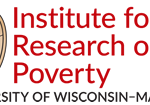 |
*New* CSSS Seminar: Can we change “ideal worker” norms? The impact of workplace policies, composition, and post-pandemic culture (4/3/24)
|
Please join CSSS for their seminar with Elizabeth Hirsch, a professor of sociology at the University of British Columbia. Her research focuses on work and organizations, inequality, and the law. Most of her work examines how legal interventions and workplace policies affect gender, race, and ethnic inequality at work. This hybrid seminar will take place on April 3rd from 12:30-1:30 PM in 409 Savery and on Zoom. Learn more about the talk and joining on the event page.
(read more)
|
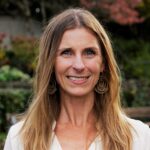 |
Apply for the Visiting Poverty Scholars Program at the Institute for Research on Poverty (Due 4/3/24)
|
The Institute for Research on Poverty invites applications from U.S.-based scholars who belong to groups underrepresented in academia to apply for its Visiting Poverty Scholars Program. The Visiting Poverty Scholars Program aims to enhance the research interests and resources available to poverty scholars from underrepresented populations, foster interaction among a diverse set of scholars, and broaden the corps of poverty researchers.
(read more)
|
 |
Lunch-and-Learn for the Center for Disaster Resilient Communities (4/3/24)
|
The next lunch-and-learn session for the Center for Disaster Resilient Communities will occur on Wednesday, April 3, 2024, from 12:30 – 1:30 p.m. in the Hans Rosling Center for Population Health and via Zoom. Lunch will be offered for in-person attendees. This event will feature Dr. Judith Mitrani-Reiser, Senior Research Scientist in the Materials and Structural Systems Division (Engineering Laboratory) of the National Institute of Standards and Technology. Dr. Mitrani-Reiser’s presentation will be, “Taking Measure: How Earthquake Reconnaissance Has Evolved Over Fifty Years.” Please see the flyer for more details and a registration link.
(read more)
|
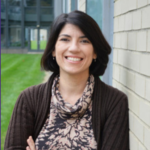 |
*New* Request For Proposals: HPV Coverage Measurement (Gavi & BMGF) (Letters of Interest due 4/3/24)
|
The Gates Foundation is seeking a qualified organization or consortium of organizations to conduct robust population-based household surveys to measure HPV vaccine coverage in priority countries. The work will inform HPV vaccine program measurement, while also assessing additional innovative methodologies for primary data collection. Intent to participate is due Wednesday, 3 April 2024 and the closing date for proposals is Monday, 6 May 2024. Learn more in the RFP and in the full story.
(read more)
|
 |
Seminar by UW Moris Women’s Center: Building Blocks to our Economy, Interest Rates (4/10/24)
|
The UW Moris Women’s Center will host the third seminar of its Financial Empowerment and Literacy Series, co-sponsored by CSDE. The seminar will take place on Wednesday, April 10th from 11:30-1:00 PM in 320 Parrington Hall. Speakers in this series include Rachel McCracken (CFA®, MBA – Team Lead & Wealth Manager), Becky Wilcox (CFA®, MBA, FRM – Wealth Manager), and Larissa Vidal (Wealth Manager). In this third seminar, speakers will discuss what happens after you open investment accounts.
(read more)
|
 |
*New* CSSS Seminar: Data science with communities in the loop (4/10/24)
|
CSSS welcomes you attend a seminar with Madeleine Daepp on April 10th from 12:30-1:30 PM in 409 Savery and on Zoom. Madeleine I. G. Daepp is a senior researcher on the Special Projects team at Microsoft Research. Her research is characterized by multi-sectoral collaborations to solve problems in shared public space. Read the abstract and learn more about joining on the event page.
(read more)
|
 |
Funding for Projects to Implement Natural Climate Solutions in the Pacific Northwest (LOI due 4/12/24)
Attend the Symposium on Race, Health, and Justice (4/12/24)
|
Attend the Benjamin Rabinowitz Symposium in Medical Ethics, with its 2024 focus on Race, Health, and Justice. This cross-disciplinary symposium brings together students, faculty, researchers and members of the public to discuss racial disparities in population health and health care, and the broader social, political, economic and historical structures in which they occur. The event will take place on Friday, April 12th from 9:00 AM to 5:00 PM in the Walker Ames Room of Kane Hall.
(read more)
|
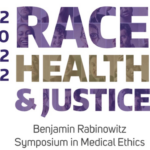 |
*New* JSDE Seminar to Host Madeline McKelway (4/15/24)
Many CSDE-Relevant Grant Opportunities at NICHD!
|
The NICHD has listed many grant opportunities that should be of interest to CSDE affiliates. Check out the list here. If you are interested, CSDE can help you with providing ‘eyes’ for feedback on the narrative, contacting a program officer, more formalized mock review panel of experts to provide feedback on a penultimate draft, a summer grant writing program, or scientific methods consultations. We’re happy to support your science! Just ask!
(read more)
|
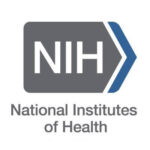 |
CSDE Population Research Planning Grants (PRPGs) (Rolling deadline)
|
Population Research Planning Grants (PRPGs) are designed to provide in-kind support and/or funds of up to $25k* to support a wide array of activity types throughout the development of a research project. As part of our mission to complement rather than duplicate other campus opportunities such as the Population Health Initiative seed grants, we will consider funding a variety of activities. See a list of example activities in the full story!
(read more)
|
 |
CSDE Matching Support to Supplement On-campus Funding (Rolling deadline)
|
CSDE Matching Support includes in-kind or monetary support to accompany a submission to other on-campus funding mechanism, such as PHI, EarthLab, or Urban@UW. All projects must have a CSDE affiliate who is UW faculty and is listed as a PI or co-PI, with any number of other collaborators. Note that we require (PRPGs) or strongly suggest (matching funds) contacting either Development Core Director (Steven Goodreau) or CSDE Director (Sara Curran) to discuss possibilities for your specific proposal before submission.
(read more)
|
 |
ARPA-H Hits the Ground Running with Sprint for Women’s Health (Opportunities to be announced)
|
As the first major deliverable of the White House Initiative on Women’s Health Research, the Advanced Research Projects Agency for Health (ARPA-H) announced the ARPA-H Sprint for Women’s Health, which commits $100 million towards transformative research and development in women’s health. ARPA-H will seek funding proposals with revolutionary, evidence-based ideas from a diverse mix of scientific visionaries to improve the lives of millions of women. Awardees will develop unconventional approaches and innovative new avenues to push high-impact biomedical research forward.
(read more)
|
 |
Registration Now Open for ICPSR’s Summer Program (sessions available May-Aug. 2024)
|
Registration for the ICPSR Summer Program in Quantitative Methods is now open for their topical workshops and general session. Their general sessions run from June 10-July 5, and from July 8-August 2. Topical Workshops cover a single subject and run for either 20 or 40 hours in just three, five, or ten days, and run from May through August. Sessions and workshops are available online and in-person at the University of Michigan.
(read more)
|
 |
|
|

